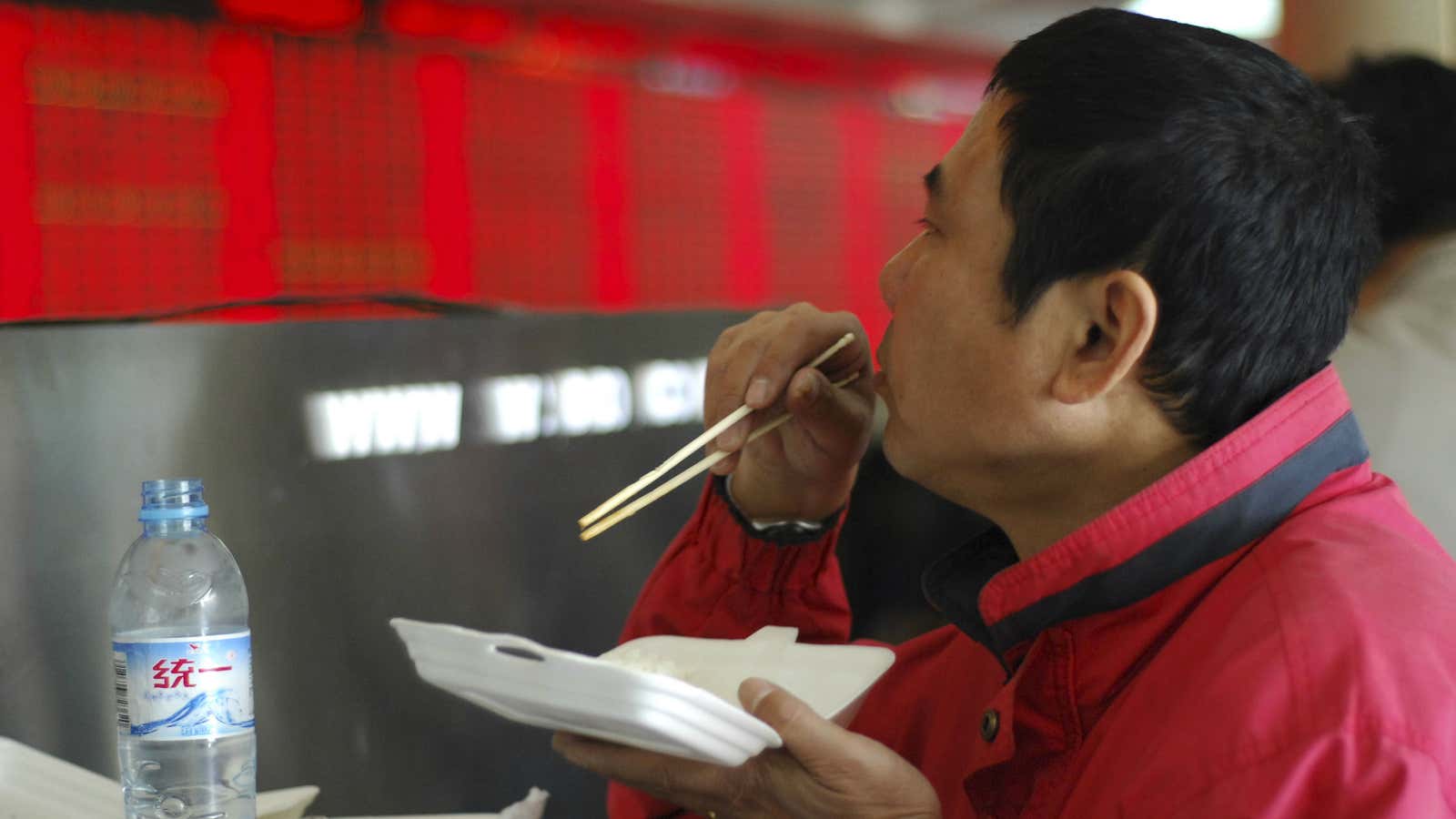An activist organization in China is taking some of the country’s food delivery companies to court over a set of utensils.
The Green Volunteer League of Chongqing, an non-governmental organization that promotes environmental awareness, has filed individual lawsuits against the parent companies of three popular food delivery apps: Ele.me, Meituan Waimai, and Baidu Waimai.
The group argues that the apps do not easily let users opt out of receiving chopsticks and other sets of disposable utensils, and instead sends utensils with each order by default, which creates needless waste.
“Often when we order food, our colleagues often will say, ‘The delivery person brought so many chopsticks I have no use for.’ Wrapped disposable chopsticks pile up in faraway corners in our offices or homes. We feel this is a pity,” the group wrote in a blog post (link in Chinese) published on Aug. 30.
Chinese media outlet Caixin looked at the three apps in question to see if they indeed prevented users from opting out of receiving utensils. It found that Meituan Waimai has a feature that lets users select “0” as the number of utensils received, but the option is hard to find. Ele.me sets “1” as the lowest number of utensils one can choose, while Baidu Waimai offers utensils for orders as a default setting. Meituan and Ele.me told Caixin they have since changed their settings to let users opt out of chopsticks easily. Baidu Waimai said that utensils are provided by the restaurants, not Baidu Waimai itself, and therefore the matter is out of its control.
Ele.me did not respond to Quartz’s request for comment, and Meituan Waimai and Baidu Waimai could not be reached.
The Green Volunteer League suggested that the apps introduce a feature that asks whether users need utensils or not. If they do, they’ll be charged 1 yuan (about $0.15); if they don’t, then 1 yuan will be deducted from their order.
Disposable chopsticks have long been a target for China’s environmental activists. The country suffers from serious deforestation, and only 3.34% of China’s forests remain intact, according to Greenpeace. Estimates for China’s annual chopstick production range from 57 billion pairs—equivalent to 3.8 million trees (paywall)—to 80 billion pairs. Safety is another worry, as many chopsticks are treated (paywall) with chemicals like hydrogen peroxide, paraffin, and sulphur dioxide.
The sheer scale of Meituan Waimai, Baidu Waimai, and Ele.me shows how serious the impact of disposable chopsticks can be. Together, Meituan and Ele.me make up more than 80% of market share in China’s food delivery sector. Meituan alone processes some 10 million orders a day. That’s a lot of chopsticks that are going straight into the trash, or left sitting in a corner, unused and forgotten.
